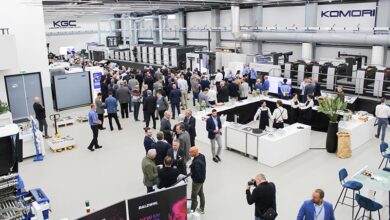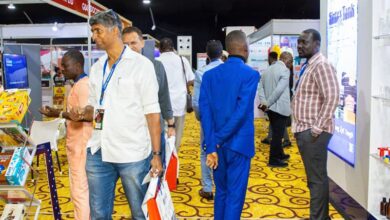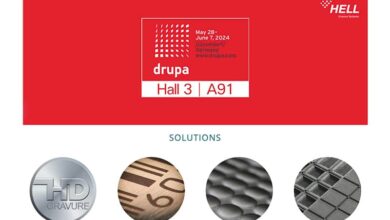Bionic arm awarded ‘Best Innovative Project’ at first Gulf 3D Printing Olympiad
The inaugural Gulf 3D Printing Olympiad organised by learning solutions company Atlab selected a 3D printed bionic arm as the ‘Best Innovative Project’ of the year. Designed by Rishabh Java, a 14-year-old student from GEMS Millennium School Sharjah, the winning creation is a low-cost, mind-controlled, functional 3D-printed bionic forearm which users can control with their mind. The bionic arm was built using Electroencephalography (EEG) – an electrophysiological monitoring method to record electrical activity of the brain – and can perform simple tasks such as shake hands and pick up objects among others.
“I am thrilled to receive the award. In future I plan to add other functionalities such as equip it with sensors that give a real-time response to the residual arm, have wrist and elbow movement and make it more user-friendly,” said Java.
Another interesting design that was showcased is a Fumes Dissipater created by Rishi Bhatnagar of DPS Sharjah. In most homes that still use celling fans, a black charred mark above the wall regulators is a common feature. The 3D printed dissipater sits above the regulator as an additional layer and diverts the flow of fumes using new openings, thereby preventing the walls from turning black. It is also equipped with a detachable filter for easy cleaning. The product can be customised and fixed using screws or clipped with a metallic base. The upper section can also be used to showcase household decorative items.
Arjun Bhorkar, a participating student from The Millennium School in Dubai, designed a multi-purpose bottle that could contain more than one drink. “I saw a need for an all-in-one bottle because my friends used to carry one for juice and another separately for water. Also, some of them added lime into their water bottles to add flavour, but it ended up obstructing the flow when they tried to drink from it. So I designed a bottle that could hold two different types of liquid; I designed it in such a way that you can insert a piece of lime but without obstructing the flow of water,” explained Bhorkar.
Among the other innovative designs included a sensor-enabled plastic waste collector by Uhoud Khalid Al Jarman and solar-powered flashlight by nine-year-old Jassim Mohammad Al Marzooqi of Hamdan Bin Rashid Al Maktoum Centre for Giftedness and Creativity.
More than 75 teams from numerous schools across the GCC participated in the competition, aimed at inspiring young entrepreneurs by fuelling their innovation and creativity through 3D printing. The winning teams selected from four different categories were awarded with 3D printers and cash prizes of AED10,000 (first) and AED5,000 (second) and AED3,000 (third).
The Gulf 3D Printing Olympiad was open to all school and university students between the age group of 10 and 25 residing in the GCC. Inspired by His Highness Sheikh Mohammed Bin Rashid Al Maktoum’s vision of innovation, the competition was based on the theme, ‘Design Your First Consumer Product’. Participants were asked to design and 3D print an innovative product, preferably something that could help people in their everyday lives.
The event was held at the GEMS Wellington Academy in Dubai Silicon Oasis. An expert panel of judges from the fields of design, technology and science selected the winners based on creativity, precision, originality, inventiveness, execution as well as the quality of the presentation.
“The Gulf 3D printing Olympiad, the first such event in the region, is aimed at creating young engineers. The Olympiad provided a perfect opportunity for students to innovate and fuelled their curiosity and creativity. It takes them a step closer to solving real-world challenges, beyond just textbook-based curriculum,” said S. Senthil Kugan, Director, Atlab.
Atlab has announced that starting next year the competition will be extended to other parts of the world. The 3D Printing Olympiad, as it will be called from 2017, will include countries such as the UK, Singapore, Malaysia, Netherlands and Poland, with national-level competitions held in their respective countries. The qualifying teams will present their products at the final round held in Dubai.




